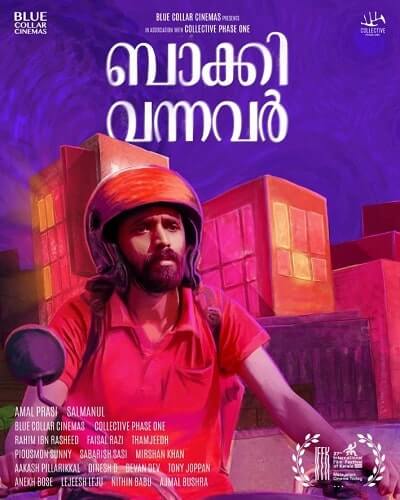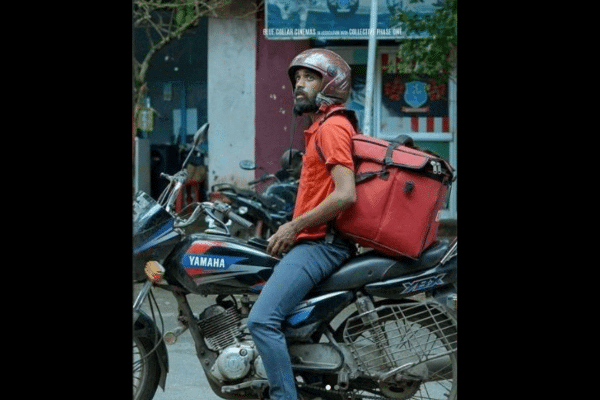Few feature-film debuts hit the mark quite as well as Amal Prasi’s Baakki Vannavar (The Leftovers) does.
Created by a team of former students from Maharaja’s College in Ernakulam, this Malayalam independent film originally missed out on theatrical release, premiering at the International Film Festival of Kerala.
Since gaining the backing of acclaimed director and college alumna Rajeev Ravi, it has screened independently in the Ernakulam area, and continues surely and steadily to expand its distribution, currently premiering in Australia as part of the Indian Film Festival of Melbourne 2023 online program.
Here’s hoping it travels far, for it delivers sharp, brutally honest storytelling that punches well above its Rs. 12,000 budget.
AT A GLANCE
Language: Malayalam
Duration: 88 minutes
Director: Amal Prasi
Cast: Salmanul Faris, Anekh Bose, Lejeesh Mani, Faeez Muhammed, Ansu Sabu, Rehas Muhammed, Anandhu Madhu, Mirshan Khan
Writers: Salmanul Faris with Amal Prasi
Rating: *****
Baakki Vaanavar follows a food delivery boy in Kerala struggling to stay afloat, a nameless representative of India’s ‘leftover’ youth resigned to gig-economy jobs as they wait for a public service posting. Passed over for office jobs and too poor to travel overseas, he eventually capitulates under the dearth of opportunities afforded to underprivileged youth like him in a climax that is subdued but gut-wrenching.

The film acutely renders the predicament faced by underprivileged graduates without ever dipping into ‘struggle-porn’, delivering high calibre social realism that would rival a Ken Loach film.
Despite its tight 88-minute runtime, the film unfolds slowly, indulging in long observational scenes that often transpire without a word. However, these sequences never outstay their welcome, conveying the tedium of this delivery boy’s life without ever being tedious themselves.
Salmaanul Faris shines as the nameless lead role, which he co-wrote with Prasi based on his lived experience as a delivery boy. Swapping loud proclamations for silent anguish, he delivers an understated performance that worms its way into your soul.
Rather than browbeat a message, the film prefers mundanity, gently opening your eyes to the perspective of the young and unemployed. Faisal Razi’s music is delicate, subtly enhancing the power of Faris’ performance, and Rahim Ibn Rasheed’s cinematography thoughtfully employs Roy Andersson-style static shots to position us as voyeurs.
Though the team have no formal cinema training, they accomplish strong, detailed filmmaking; an extreme wide shot midway through the film Baakki Vaanavar shows a roadside billboard advertising luxury apartments towering over the protagonist, a tongue-in-cheek reminder of the disconnect between our protagonist’s squalor and the excess enjoyed by the wealthy. Another sequence uses a Dutch-tilt angle and the metaphor of a broken-down bike to echo the stagnancy of the delivery boy’s life.
The film’s masterstroke is a lengthy three-shot of a university hostel room, our protagonist sitting in wordless discomfort in the corner as his friends heatedly debate the lack of opportunities in India. This turns into a hilarious but poignant shouting match as our delivery boy helplessly looks on, and the argument fails to reach any resolution, a bitter reflection on the complexity of social progress.
Baakki Vaanavar is a potent, urgent expression of young, disadvantaged Indians’ anger that never shouts; it’s a tale of a desperate and overwhelmed generation grappling with the futile hand they’ve been dealt which resonates long after it finishes.
It’s stripped-back, simple filmmaking at its best. A far cry from the budget and star-power of its contemporary Zwigato, it’s a reminder that you don’t need much to speak volumes.
READ ALSO: IFFM 2023 Opening Night: Ghoomer bowls over audiences





